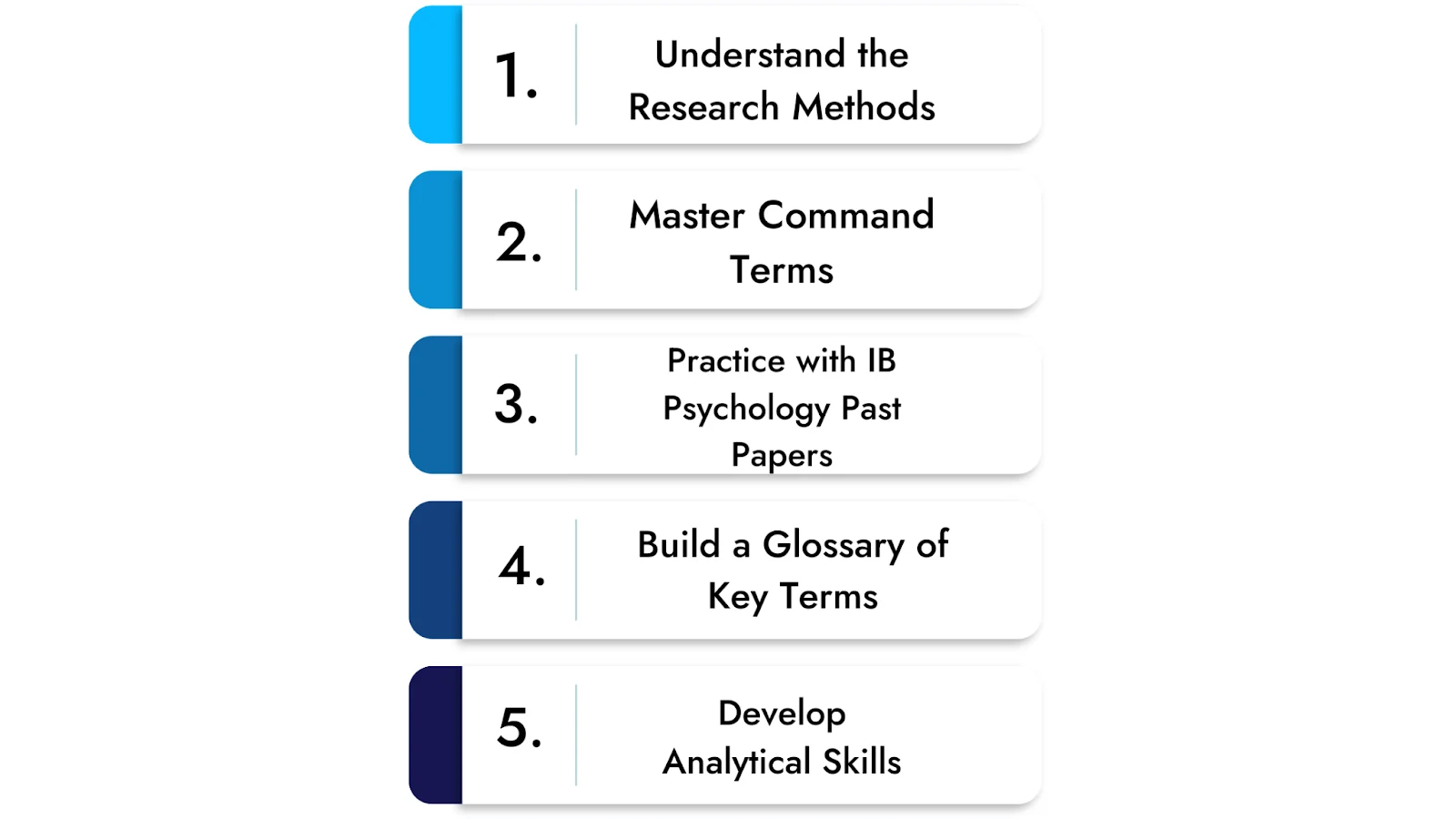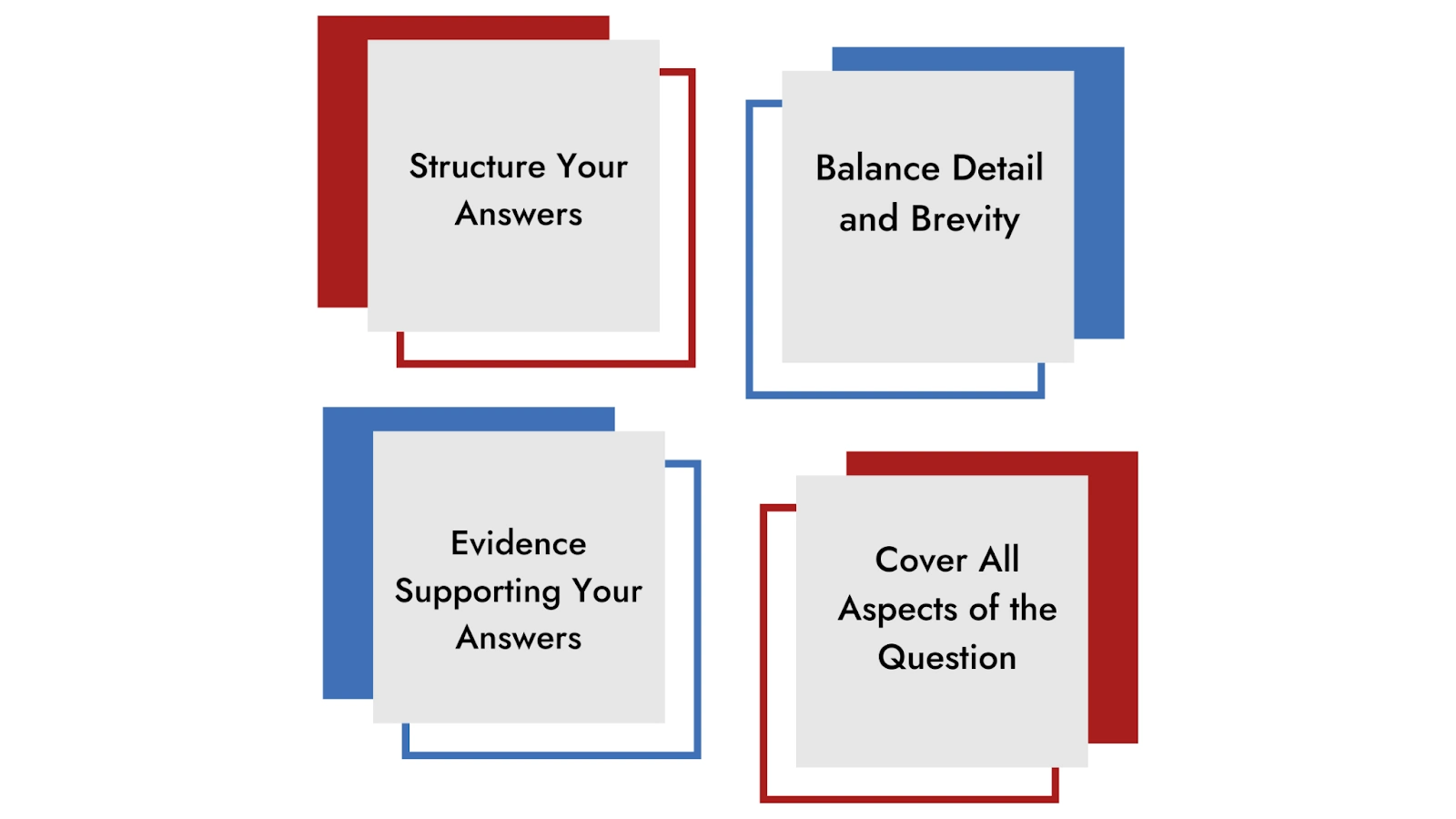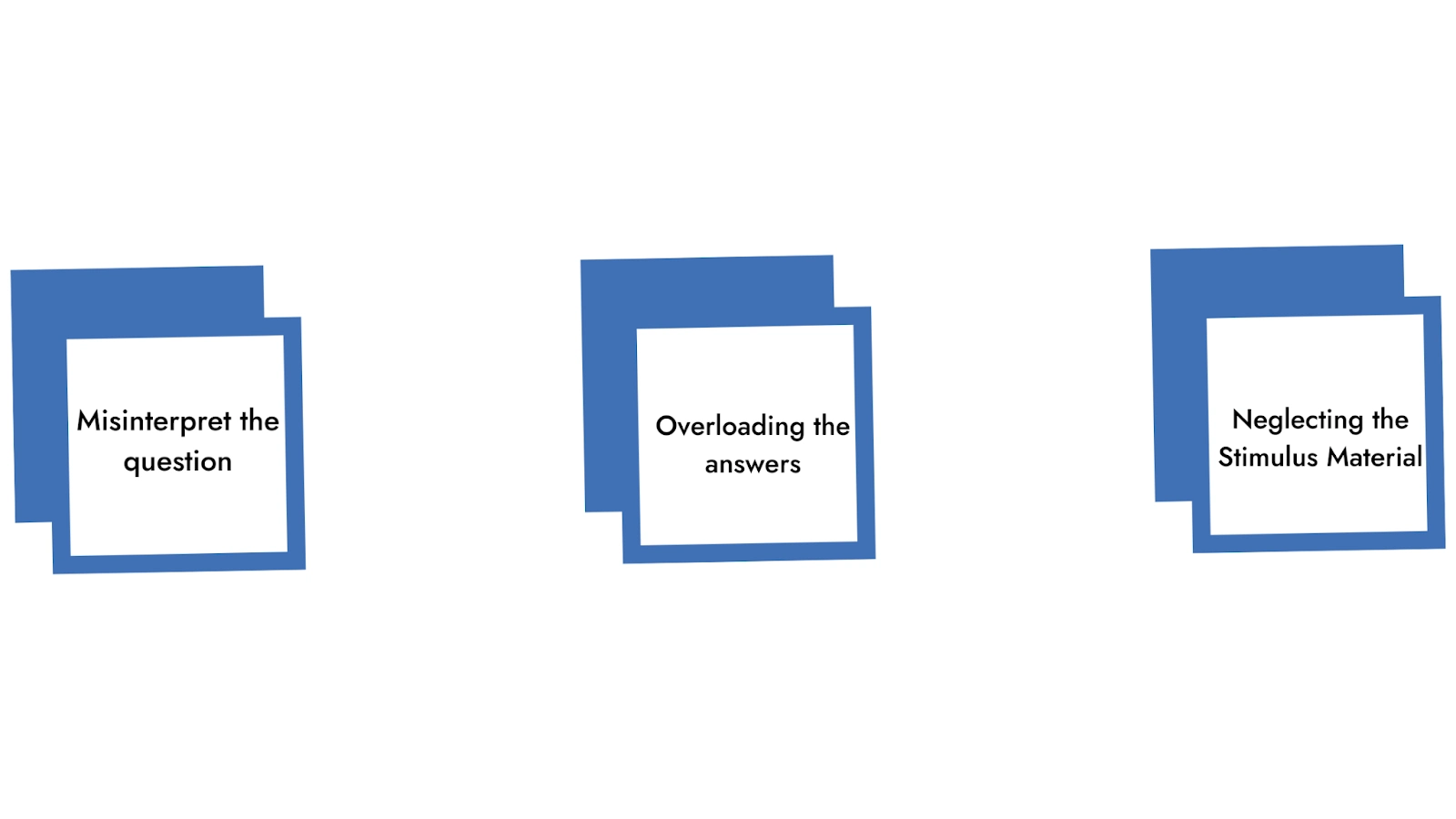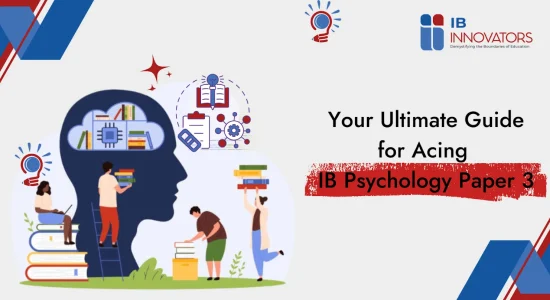Are you worried about your performance in Paper 3 or unsure about exam preparation?
You are not alone!
Many students face the same struggles. But with the right approach, you can overcome these challenges.
Preparing for IB Psychology Paper 3 can be daunting. Specifically for higher-standard (HL) students, this article delves deeper into qualitative research methods. Test your ability to interpret stimulating content. And use concepts related to research.
With IB Innovators’ clear strategies and expert advice, you can tackle this challenge with confidence and perform exceptionally well. To explore more about the IB curriculum and assessment, visit here for more insights.
This blog goes from learning how to know paper formats to mastering skills and managing time strategies.
Contact us for IB tutoring and succeed in your IB Psychology Paper 3 with IB Innovators Expert Tutors!
What Is IB Psychology Paper 3?

IB Psychology Paper 3 is a crucial part of the HL syllabus. It deals with qualitative research methods; for this, students need to be able to analyse stimulus materials and express their understanding of data interpretation and research concepts.
- Format: Paper 3 is a three-question paper on stimulus material, which requires detailed answers.
- Weightage: It accounts for 30% of the final grade for IB Psychology HL.
- Skills Tested: Critical thinking, analysis, and application of qualitative research methods.
|
Note: Paper 3 is only part of the IB Psychology (HL) curriculum. And does not apply to (SL) students. |
Common Challenges in IB Psychology Paper 3
Many students said that Paper 3 was challenging because of the following:
Complex Research Methods
Understanding qualitative research methods, including case studies, interviews, and observations, without a clear framework can be overwhelming.
Time Constraints
Writing a perfectly well-structured answer in a limited time is a recurring obstacle.
Stimulus Material Interpretation
Critical analysis of the information and its relevance from the given text is very sharp and needs much practice.
How to Prepare for IB Psychology Paper 3

1. Understand the Research Methods
Completeness with research methodologies framed on understanding is crucial to succeeding. More focused on these:
- Qualitative Research Methodologies
Study such things as cases, group chats, and interviews; understand how these differ qualitatively from quantitative approaches.
- Important terms and concepts
Become familiar with these: credibility, reflexivity, triangulation, and transferability, and answer your definitions by clarifying them in your response.
2. Master Command Terms
Command terms entail how you need to write your answer.
|
The most common of them all in Paper 3 are the following:
|
Understanding these terms will help you meet the examiners’ expectations.
3. Practice with IB Psychology Past Papers
Regular practice over the last two years ends up becoming really rewarding material. It aids you in:
- Identifying consistent themes and patterns in the questions and understanding.
- Examiner Reports on how examiners award marks.
4. Build a Glossary of Key Terms
The development of a glossary of key terms relevant to Paper 3 will result in your answers being more precise and articulated better. Include meaning, examples, and potential applications.
|
Remember! Use the glossary of terms you’ve created during preparation. |
5. Develop Analytical Skills
Focus on interpreting stimulus material effectively. Practice extracting relevant data and linking it to research methods and theories.
Tips for Writing IB Psychology Paper 3

1. Structure Your Answers
Structured answers facilitate easy comprehension for examiners. It takes the following format:
- Introduction: A brief introduction to the response.
- Main Body: Detailed answers with evidence and examples.
- Conclusion: Summarise your key points.
2. Balance Detail and Brevity
It’s important to strike a balance between being thorough and concise. Offer sufficient detail to demonstrate your understanding, but steer clear of overly lengthy explanations that diverge from the topic.
Concentrate on the integral points and write within the warranty limit to ensure clarity and accuracy.
3. Evidence Supporting Your Answers
Support your comments through reliable studies, pieces of research findings, or theories that may apply. For example, within qualitative research, one might delve into a specific experiment or framework to discuss.
This shows not only that one has studied but also increases the degree to which answers have increased their challenge as well as their credibility level.
4. Cover All Aspects of the Question
Attending to each specific portion of the question above all, those that ask for command terms such as “analyze” or “evaluate.
Cautiously examine the prompt to make sure all required components have been met in answering.
5. Time Leadership Tips for Paper 3
Time management can make or break your performance. Use these strategies:
- Plan Your Answers:
Spend a few minutes outlining each response before writing.
- Divide Your Time Wisely:
Allocate equal time to the three questions and save some time at the end for revision.
- Review and Revise:
Use the last 5–10 minutes to check your answers for errors and clarity.
|
Remember! Practice under timed conditions to simulate the |
Common Mistakes to Avoid

- Misinterpret the question: Ensure you keep on understanding the fact that once again you read the question.
- Overloading the answers: Stick to the points without all the added unnecessary detailing.
- Neglecting the Stimulus Material: Always relate your answers to the given data.
Practice Resources for IB Psychology Paper 3
1. IB Psychology Past Papers
One of the most effective ways to prepare is to practice past papers regularly. Use mark schemes to assess your performance and identify areas for improvement.
2. Expert Tutoring Services
Should you experience difficulty, consider contacting IB Innovators. The tutors offer individualized training, particularly on:
- Expertise in research methods.
- Writing answers that are accurate and well-structured.
- Improving analytical and critical thinking skills.
|
Remember! Reach out to IB tutors or join sessions at IB Innovators for personalized. |
For personalized support tailored to your needs, explore their 1-on-1 tutoring services designed to boost your confidence and academic performance.
Why Choose IB Innovators for IB Tutoring?
IB Innovators specializes in providing comprehensive support for IB Psychology Paper 3. Their tutors help students:
- Build a firm foundation in research methods.
- Time management and effective writing.
- Get higher scores through personal training.
Whether you need help with Paper 3 or other components of the IB Psychology curriculum, IB Innovators offers tailored solutions.
Final Thoughts
Excelling in IB Psychology Paper 3 demands preparation, practice, and perseverance. By mastering the exam format, understanding research methods, and practicing with past papers, you can confidently approach the exam.
Remember to use all available resources, including expert tutoring from IB Innovators, to refine your skills and maximize your potential. Consistent effort and focus are the keys to success—believe in your ability to succeed!
Do you like what you read? Learn more about IB tutoring on our blog here.
FAQs
What is the Best Way to Prepare for IB Psychology Paper 3?
Focus on mastering qualitative research methods, understanding key terms, and practicing with past papers. These steps help you become familiar with the exam format and build confidence.
How Hard is IB Psychology Paper 3?
While it can be challenging due to time constraints and complex material, consistent practice and a clear strategy make it manageable.
Are Qualitative Research Methods Difficult?
They may seem tricky initially, but understanding concepts like reflexivity and triangulation simplifies their exam application.
Can IB Tutors Help with Paper 3 Preparation?
Experienced tutors provide targeted strategies, detailed feedback, and personalized support to improve your understanding and scores.
Is IB Psychology Harder Than Other IB Subjects?
IB Psychology requires analytical thinking and research skills, but with regular practice, these can be developed, making the subject more approachable.







